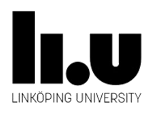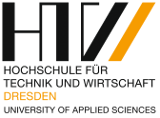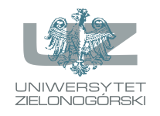






Invitation for the International Conference
ICTM 2021
CFP: ICTM 2021 Wroclaw, Poland: CALL FOR PARTICIPATION AND PAPERS
VIII International Online Conference on ICT Management for Global Competitiveness and Economic Growth in Emerging Economies ICTM 2021
Wroclaw, Poland, October 26-28, 2021
Conference Theme: The digital innovation in information systems, virtual management and their impact on sustainable development in crisis conditions
ICTM 2021 Conference Website:
https://ictm2021.edukacja.wroc.pl
Submission website:
https://easychair.org/conferences/?conf=ictm20210
or email:
ictm.wroclaw@gmail.com
Organizers
- University of Wrocław, Poland;
- Polish Chapter of Association for Information Systems (PLAIS);
- Hochschule Emden/Leer, Germany;
- The College of Management “Edukacja”, Poland; Jagiellonian University, Poland;
- Polish Association of Analytical Psychology (PTPA), Poland; and
- Hochschule für Technik und Wirtschaft Dresden, Germany
Sponsored by AIS Special Interest Group on ICT and Global Development (SIG GlobDev) since 2012: http://www.globdev.org/
The ICTM 2021 will be hosted by the University of Wrocław online, a public comprehensive university in south-western Poland. It was founded in 1702.
CONFERENCE CO-CHAIRS
- Jolanta Kowal, University of Wrocław, President Elect of The Polish Chapter of Association for Information Systems (PLAIS), SIG GlobDev, President of PTPA (Poland).
- Juho Mäkiö, Hochschule Emden/Leer (Germany), AIS.
- Piotr Soja, University of Economics in Kraków, AIS, PLAIS, SIG GlobDev (Poland)
- Ralph Sonntag, Prorektor für Lehre und Studium, Hochschule für Technik und Wirtschaft Dresden (Germany)
- Paweł Weichbroth, Technical University in Gdansk (Poland).
email: ictm.wroclaw@gmail.com
CONFERENCE PROGRAMME COMMITTEE CO-CHAIRS:
- Jarosław Klebaniuk, The University of Wrocław, Institute of Psychology, Poland
- Anna Karkanitsa, Yanka Kupala State University of Grodno, Belarus
- Ewa Pańka, Rector of College of Management "Edukacja", Poland
- Michał Kuciapski, The Technical University of Gdańsk, Poland?
- Svetlana Lebed, Brest State Technical University, Belarus
- Alicja Senejko, University of Wrocław, Institute of Psychology, Poland
- Ewa Soja, Cracow University of Economics, Department of Informatics, Poland
NOTE
Proceedings of the ICTM are indexed in Web of Science and PBN since 2012.
Contributions to any of the directions within the spectrum of the ICTM 2021 paradigm are welcome.
The four categories for proposals are (1) abstracts, (2)individual papers, (3) posters and (4) eposters.
Three kinds of publications are planned, the first one - a monograph, in which the papers with up to 20000 characters in English be will be included; the second one, in which the articles in a smaller volume will be published. The monographs will be submitted for inclusion in the Citation Index by Thomson Reuters. The paper should also be accompanied by a summary in English. Those papers which are top rated by reviewers when submitted to the ICTM 2021 conference will be published in a monograph and in a special issue of the journal of international scope.
Submission website:
https://easychair.org/conferences/?conf=ictm20210
Please feel free to circulate this message to any colleagues or contacts you think may be interested.
IMPORTANT DATES
Submission of abstracts/posters/panel/papers proposals opens 1st September, 2021
- Submission of abstracts/posters/panel proposals closes 15th October 2021
- Notification of abstracts/ papers acceptance by 17th October, 2021
- Submission of presentations as mp4 files closes 20th October 2021
- Registration opens 15th October, 2021
- Registration closes 22th October, 2021
- Payment closes 22th October, 2021
- Conference takes place October 26-28, 2021
- Paper submission opens 30th November, 2021
- Paper submission closes 31th December, 2021
TOPICS
The digital innovation in information systems, virtual management and their impact on sustainable development in crisis conditions
The conference will focus on the ICT and IS development, virtual management, and their impact on different aspects of sustainable development, possible in crisis circumstances. We understand that sustainable development is a positive socio-economic change that does not undermine ecological and social systems (Rees, 2989, FAO, 2021).
Recent, challenging experiences of people related to the pandemic and lockdown have indicated the need to use and develop information and communication technologies (ICT) and information systems (IS) both in everyday life and in companies (Roztocki, Strzelczyk, and Weistroffer, 2020). There was a need for socio-economic activity in virtual conditions. The pandemic and lockdown hampered socio-economic development (Tisdell, 2020). Hence, how to maintain human development, and maybe accelerate it, considering social and pro-ecological conditions? Can IS be used for sustainable development in crisis conditions? Which digital innovations are needed to maintain human development in such circumstances? Moreover, if so, how to effectively manage a company in crisis conditions, when sometimes the only possibility is its virtual operation?
The analysis of the development of various types of economies, such as developed, transforming, or emerging, shows that the information and communication technologies (ICT) and information systems (IS) play an extraordinary role in the development of humanity (Kowal and Roztocki, 2013). We mean information and communication technologies, including the Internet, wireless networks, computers, software, social networks, middleware, videoconferencing, social networks, mobile phones, and other media applications and services. They allow users to access, download, process, upload, store and transmit information digitally (Madlela, 2015, FAO, 2021). In turn, an information system (IS) is a formal and social engineering organizational system whose purposes are collecting, processing, storing, and distributing information (Piccoli, & Pigni, 2019). The socio-technical approach to information systems comprises four components: tasks, people, structure (or roles), and technology (O'Hara, Watson, & Kavan, 1999). IS can be understood as the integration of data collection, storage and processing components whose data is used to provide information, gathering and knowledge development, and digital products facilitating decision making (Zwass, 1992). Which digital innovations are needed to support sustainable development in crisis situation?
"Sustainable" describes any activity that can be carried out indefinitely, while "development" can refer to a single activity or a general pattern of socio-economic activity. The most crucial aspect is the development and meeting the needs of society as a whole. The assumption of this concept is also that individual economic activities are organized on the most balanced basis possible First, the concept of development includes economic activity itself, but also the process responsible for implementing and regulating it (Rees, 1989).
Its effective implementation is integrated policy, planning, and the accurate functioning of social learning processes. Its viability depends on the full support of the people it affects through its governments, social institutions, and private activities.
Management is a set of activities (planning, organizing, motivating, controlling) aimed at the organization's resources (human, financial, material, information) used to achieve the organization's goals. (Griffin, 2021). Virtual management requires knowledge of socio-economic issues, primarily organizational, but also IT. Therefore, we are particularly interested in what unique soft and hard competencies an effective manager should have.
We are especially interested in finding answers to the following questions concerning sustainable development:
1. How can digital innovations in ICT/ IS be oriented towards achieving clear ecological, social, and economic goals in crises?
2. Can the sustainable development policy impose ecological restrictions through the digital innovations in IS on the consumption of materials, promoting quality development at the collective and individual levels in crisis conditions, such as lockdown and pandemics?
3. What kind of virtual government intervention, virtual leadership, and virtual cooperation from the private sector support sustainable development in crisis conditions?
4. Is it possible to integrate and coordinate policies on all spatial scales and between the relevant political jurisdictions under crisis conditions virtually by IS?
5. If and how sustainable development depends on virtual informed, open, and equitable educational, planning, and political processes by digital innovations IS?
6. What methods and techniques of social influence can be applied ethically through ICT or IS to support the pro-ecological activity of different communities?
7. How to measure the virtual digital communications among industrial enterprises in crisis circumstances for sustainable development?
8. What are the virtual aspects of industrial branding using IS for sustainable development?
9. How can we use social media in virtual marketing for sustainable development ethically?
10. What is the impact of social networks and social media on marketing for sustainable development, especially in crisis circumstances?
11. What is the use of mobile media for sustainable development, especially in crises?
12. How can both firm-client relationships and managing the sales force be virtually formed for sustainable development?
13. How to effectively implement management in a virtual company for sustainable development at the level of individual units and globally?
14. What are the barriers to and enablers of virtual management in industrial enterprises?
15. What are the critical competencies required to manage new virtual marketing communications in an industrial setting?
We are interested in theoretical and empirical, quantitative and qualitative research, including single and multiple case studies.
AUTHOR INSTRUCTIONS
The length of abstracts or papers is 1 page of A4 formt, papers max 8-10 pages (up to 20 000 signs with spaces, up to 5000 words).
SUBMISSIONS
All papers submissions and panel should be sent to: ictm.wroclaw@gmail.com For more information go to http://ictm2021. edukacja.wroc.pl
CONFERENCE SECRETERIES
- Magdalena Kapała, University of Wrocław, Instute of Psychology, Poland
- Evgeniia Surkova, Hochschule Emden/ Leer, Germany
CONTACT
email: ictm.wroclaw@gmail.com






